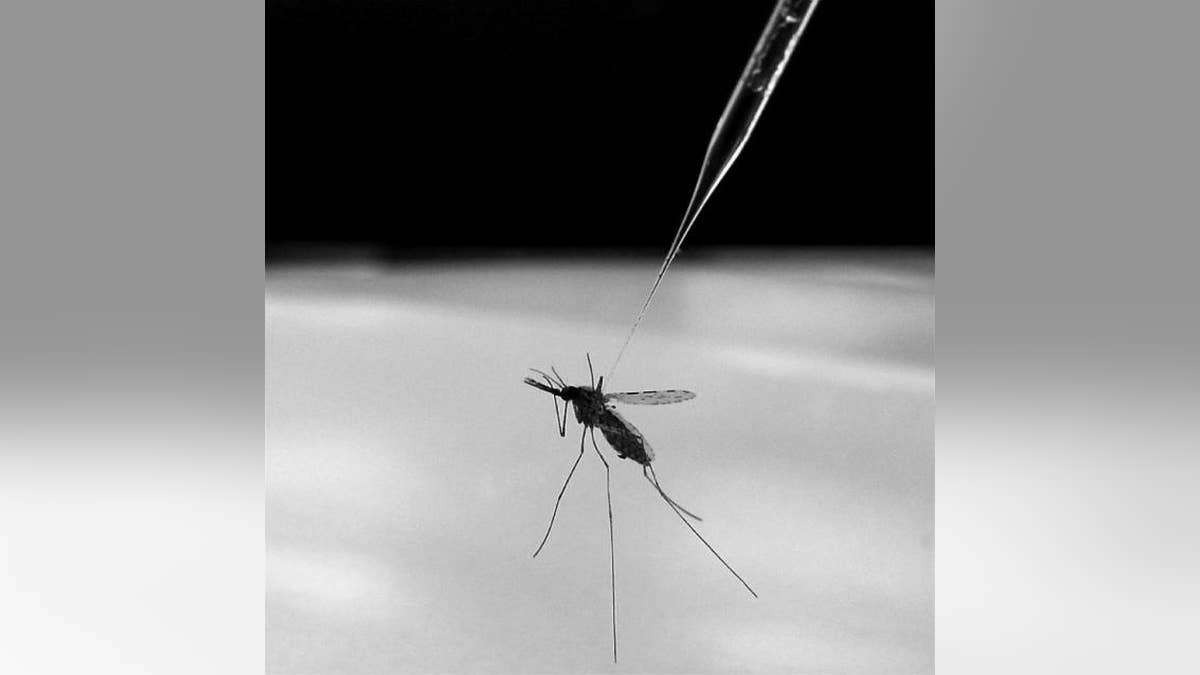
Anopheles gambiae mosquito being injected with hemolymph for malaria research study. (NIAID)
DanVostok/Getty Images
Mosquitoes are bad news when it comes to the spread of malaria, a deadly disease which kills hundreds of thousands of people each year. We previously covered a range of approaches to cracking down on this problem — ranging from apps which track disease-carrying mosquitoes by listening to their buzz to a plan to release genetically engineered killer mosquitoes to hunt down their disease-carrying wild counterparts.
Now researchers from Johns Hopkins Universtiy have another approach, and it involves CRISPR/Cas9 gene editing. Specifically, they engineered mosquitoes which are resistant to the malaria parasite, by deleting a gene called FREP1 which helps malaria survive in the mosquito’s gut.
“A major problem with malaria control is that it is a disease of the poor developing world and requires active compliance and participation by the endemic population,” George Dimopoulos, a professor at Johns Hopkins Bloomberg School of Public Health, told Digital Trends.
More From Digital Trends
The issue with this is that active compliance and participation means people taking antimalarial drugs, removing larval breeding sites and using bed nets, all things which are not always possible in areas where resources are scarce. Johns Hopkins’ genetically modified (GM) mosquito, on the other hand, represents a suitable solution because it does not require any such active participation.
In trials involving the new FREP1-modified mosquito, the researchers demonstrated that the malaria parasite was unable to survive for long enough to mature to a stage at which it serves as a danger to humans. “The efficacy of parasite blocking in the GM mutant mosquitoes is such that it most likely would have an epidemiological impact if one could replace a natural wild type mosquito population with our GM mutants,” Dimopoulos continued.
Unfortunately, for now, there is a hitch in the plan: The GM mosquitoes develop slower than ordinary mosquitoes, are less likely to feed on blood, and lay fewer eggs. All of those things may sound good from a human perspective, but they also mean that the mosquitoes are less likely to pass on their genes — and would, therefore, wind up on the wrong side of natural selection.
“The problem is that these GM mutants have a fitness cost,” Dimopoulos said. “Current studies are addressing this issue, trying to find ways of making these mosquitoes as competitive as the wild type. One way of perhaps doing this is to inactivate the parasite-host factor, FREP1, in the adult female gut only, as opposed to the entire mosquito at all developmental stages. One can also integrate our strategy with a so-called gene-drive to more effectively drive the mutation into a mosquito population.”








































